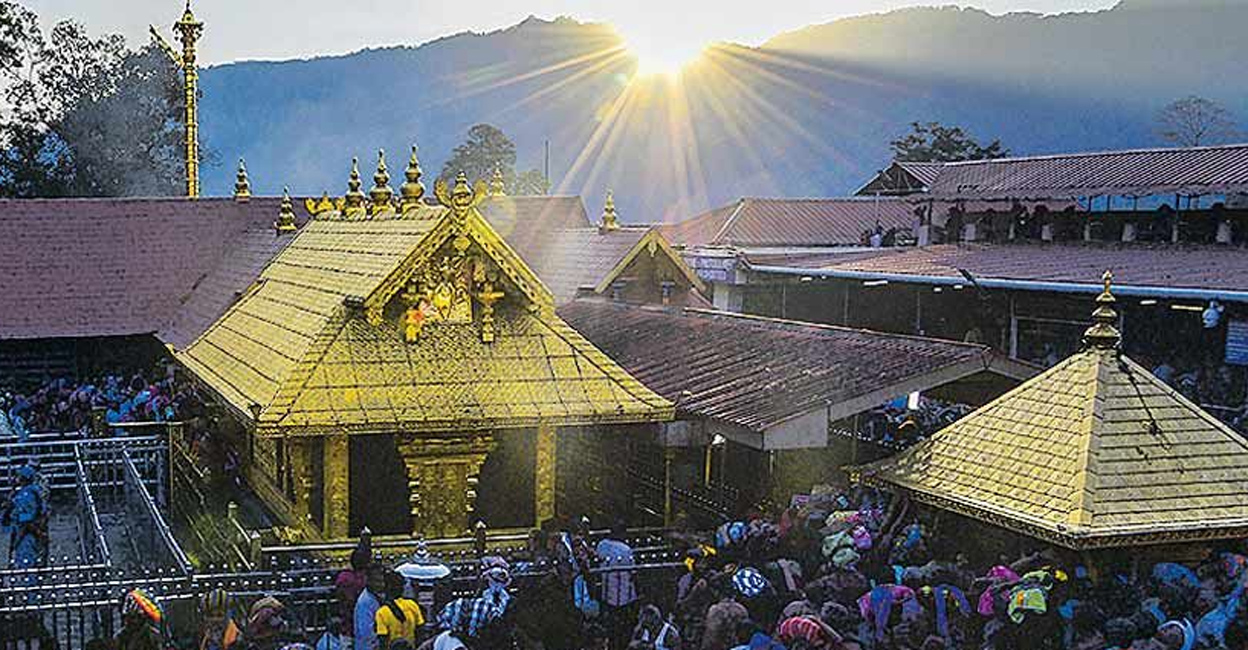


In a significant development, the Supreme Court of India has sought a response from the Kerala government regarding a plea challenging a controversial notification issued by the Travancore Devaswom Board. The notification mandates that only candidates from the Malayala Brahmin community are eligible to apply for the prestigious position of Melshanthi (high priest) at the renowned Sabarimala Ayyappa Temple.
The appeal before the Supreme Court was filed after the Kerala High Court, on February 27, dismissed a batch of petitions challenging the same notification. The petitioners, two non-Brahmin priests, have argued that restricting the selection of the high priest to individuals from the Malayala Brahmin community violates the rights guaranteed under the Constitution of India. The division bench of Justices Surya Kant and Ujjal Bhuyan has issued notices to the State of Kerala (through the Devaswom Department), Devaswom Commissioner, and the Travancore Devaswom Board, with the next hearing scheduled for October 25.
The Kerala High Court's Stance
The Kerala High Court had dismissed the writ petitions primarily on the ground that they lacked proper pleadings. The Court rejected the argument that the notification issued by the Travancore Devaswom Board amounted to untouchability, a practice abolished under Article 17 of the Constitution. The High Court emphasized that the right under Article 25(2)(b) of the Constitution is merely a right to enter the temple for worship and does not confer any right to perform services reserved exclusively for Archakas (priests).
Quoting the judgment, the High Court noted:
"As held by the Constitution Bench of the Apex Court in Sri Venkataramana Devaru [AIR 1985 SC 255], the right protected by Article 25(2)(b) of the Constitution is the right to enter into a temple for the purpose of worship. It does not follow from this that this right is absolute and unlimited in character. No member of Hindu public could claim as part of the rights protected by Article 25(2)(b) that a temple must be kept open for worship at all hours of the day and night or that he should personally perform those services, which the Archakas alone could perform."
Furthermore, the High Court clarified that the contentions raised based on Articles 25 and 26 of the Constitution of India remain open for reconsideration, particularly in light of the ongoing 9-judge Sabarimala case in the Supreme Court, which pertains to the entry of women into the Ayyappa temple.
The Travancore Devaswom Board’s Position
The Travancore Devaswom Board, a government body responsible for the administration of the Sabarimala temple, had issued a notification on May 27, 2021, calling for applications for the post of Santhikkaran (priest) at the Sabarimala Dharmasastha Temple and Malikappuram Temple. However, the notification explicitly restricted applications to members of the Malayala Brahmin community alone.
The petitioners argue that this notification disregards Supreme Court judgments and violates several constitutional provisions, including Articles 14, 15, 16, 17, and 21. They contend that the appointment of Melshanthi should be considered a secular act and should not be confined to a particular community, especially when the temple is administered by the Travancore Devaswom Board, which is fully controlled by the Government of Kerala.
The petitioners further argue that appointing individuals other than Brahmins to the post of high priest does not infringe upon Articles 25 and 26, as long as the candidates are fully qualified and trained, regardless of their caste. This argument challenges the traditional norms upheld by the Devaswom Board and seeks to open the position to a broader spectrum of eligible candidates.
The Road Ahead
The Supreme Court’s decision to seek a response from the Kerala government on this matter highlights the ongoing tension between religious traditions and constitutional rights. The outcome of this case could have far-reaching implications not only for the Sabarimala temple but also for the broader debate on caste and religion in India. The Court's eventual ruling may set a precedent on the balance between preserving religious practices and upholding the constitutional principle of equality.
As the matter is set for hearing on October 25, all eyes will be on the Supreme Court as it navigates this complex intersection of law, tradition, and fundamental rights.
TAGS: Supreme Court of India Kerala government Travancore Devaswom Sabarimala Ayyappa Temple Melshanthi Malayala Brahmin community Constitutional rights